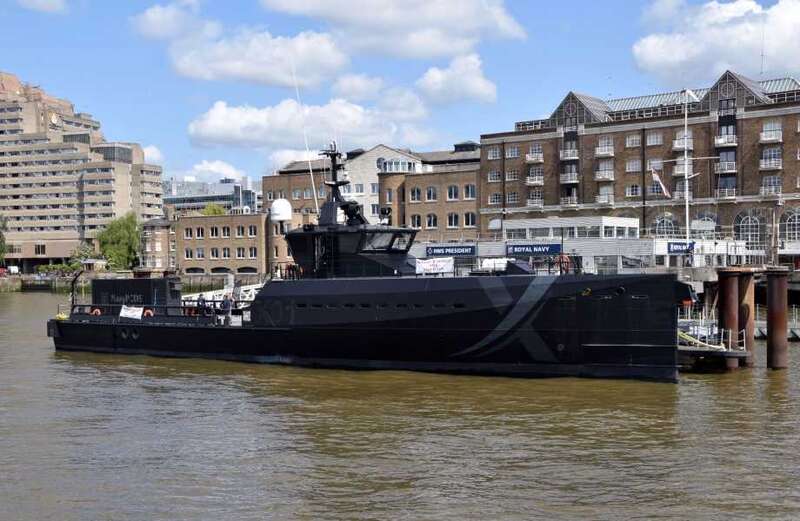A NEW Royal Navy warship has an 'invisibility cloak' thanks to mind-bending quantum navigation guided by laser technology.
XV Patrick Blackett, a 270-tonne vessel built by Damen Group, travelled from Portsmouth to the Thames using the cutting-edge navigation system on its first journey.


The Royal Navy ship, which wouldn't look out of place in a James Bond film with its sleek, black design, relied on technology that exploits the quantum properties of atoms.
Developed by physicists at Imperial College London, it has the potential in the future to provide GPS-free navigation, making it less susceptible to jamming, imitation or other sabotage.
"Sometimes that can be interfered with or sometimes it doesn't work," said Colonel Tom Ryan, head of Navy X, the Royal Navy's research division.
 Nearly 600 tanks ordered in £5.5bn deal may never enter service
Nearly 600 tanks ordered in £5.5bn deal may never enter service
He told Sky News: "So the ability to have a new and novel way of accurately, very accurately, plotting your position is fundamental to the way the Royal Navy and the military does business."
While many navigation systems rely on global satellite systems, the quantum sensor is a new type of accelerometer which measures how an object's speed changes over time.
By combining this information with rotation measurements and the initial position of the object, the current location can be calculated.
The quantum accelerometer uses ultra-cold atoms to make highly accurate measurements.
When cooled to extremely low temperatures the atoms start to display their "quantum" nature, resulting in wave-like properties.
As the atoms move through the sensor, an "optical ruler" is formed by using a series of laser pulses. This allows the acceleration of the atoms to be precisely measured.


"We're developing sensors with very, very low drift rates," Dr Joseph Cotter, from Imperial College London, told The Times.
"In principle this should enable us to navigate much further than existing systems."
Commander Michael Hutchinson, Commanding Officer of XV Patrick Blackett, added: "So far, the testing has gone well but the technology is still in its very early stages. It's great to be a part of Royal Navy history."
While the ship is operated by a very lean crew of five, there is also a team of 25 military personnel, civil servants and contractors behind the scenes.
 Harry has ‘placed target firmly on the back of his children’ by angering Taliban
Harry has ‘placed target firmly on the back of his children’ by angering Taliban
Navy X chose to name the ship XV Patrick Blackett to honour the British physicist who won a Nobel Prize for Physics in 1948.
He served in the Royal Navy in the First World War and made a major contribution in the Second World War advising on military strategy and developing operational research – being named the Admiralty's first director of Operational Research.



































